Cooking oil is a pantry staple that has far more uses than just frying up some delicious fried chicken. Both the versatility and long-shelf life of cooking oil make it a fantastic multi-use item for preppers and frugal homesteading folks alike.
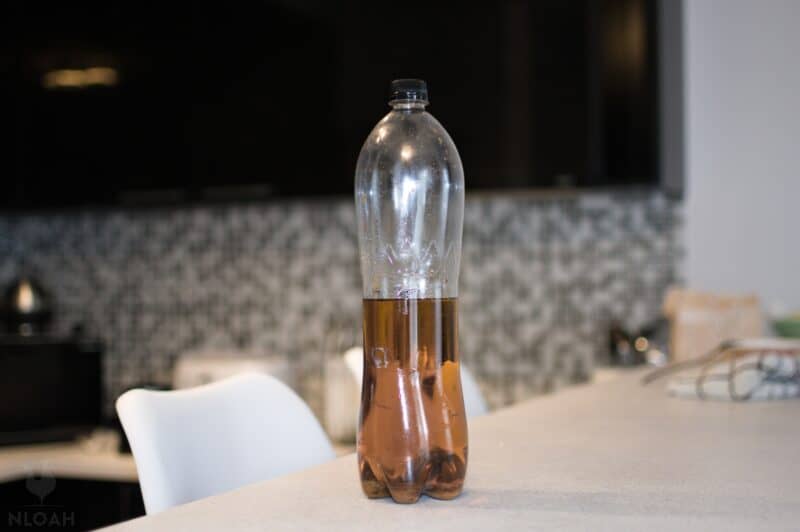
Pouring cooking oil down the drain can cause clogging either quickly or over time. You could just toss the used oil out of the door or bag it up for trash day – but that would be a very wasteful way to treat such a valuable resource.
Cooking oil is a plant, animal, or synthetic fat that is manufactured for the use in baking ,frying, and other types of cooking and food preparation.
These uses for cooking oil can be equally viable with a new bottle, used cooking oil that might otherwise be pitched, and in many cases, out of date cooking oil, as well.
As Oil For a DIY Lamp
Cooking oil can be a handy substitute for lamp oil on old-fashioned hurricane lamp or even just in quickie homemade Mason jar emergency lamps.
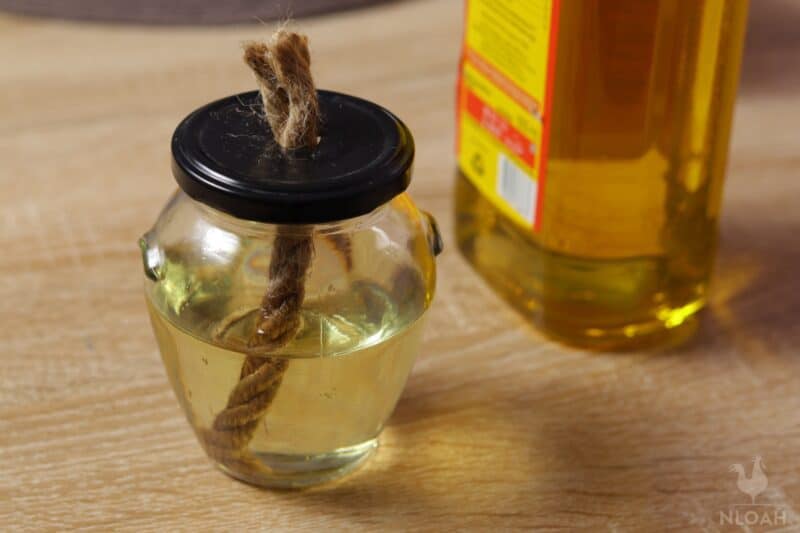
Cooking oil will emit a smell when used in a lamp just like it does in your favorite cast iron skillet as it burns to light up your room.
Leather Preservation
Rubbing some cooking oil into your leather goods can help to both soften and restore it. Use the oil sparingly to avoid a greasy texture to your leather tack, saddle, jacket, boots, vest, or furniture.
Simply rub it around onto the leather just as you would saddle soap or mink oil – and then allow it to dry completely before use.
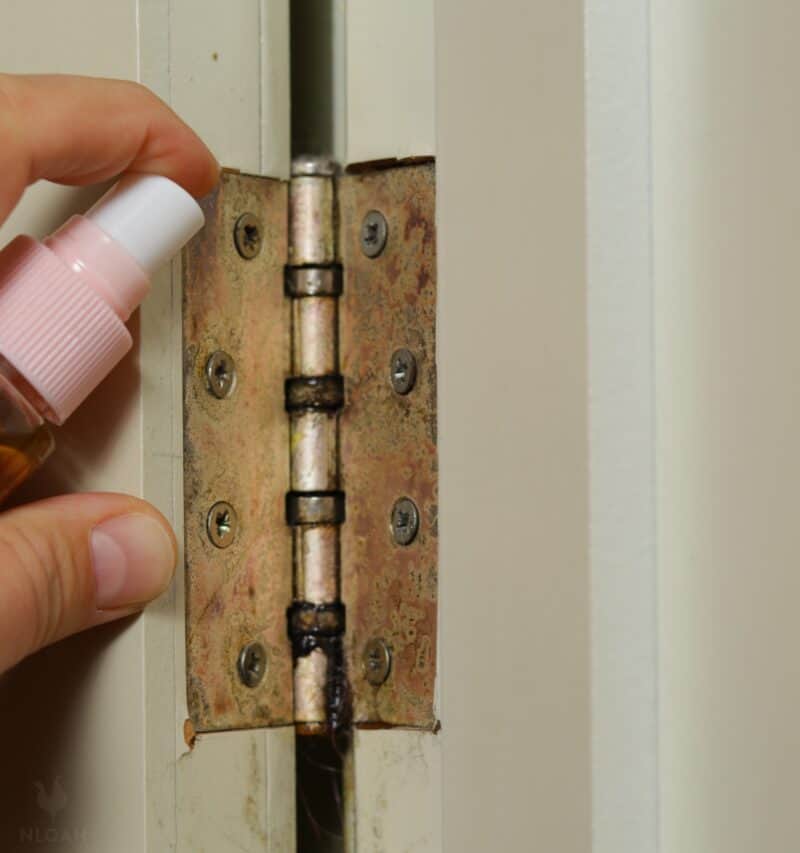
Lubricant Around the House
Cooking oil can be used to lubricate up many things around the homestead. Lather some cooking oil onto a squeaky hinge, a metal crank that refuses to budge, a stuck part on a hay baler, etc.
Anything you can think of that WD40 would typically be used for around the house or barn, cooking oil should be a worthy substitute.
Plant Health
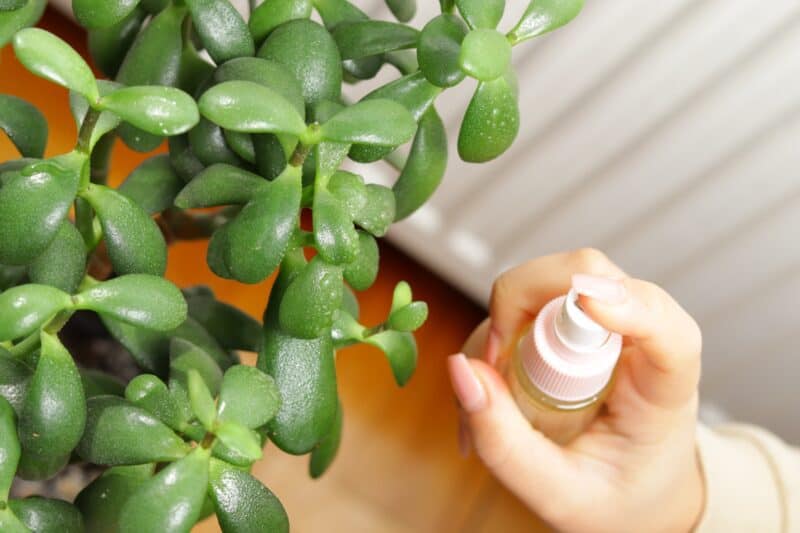
Make a natural plant spray from ½ of a cup of water and 1 cup of vegetable oil to use on plants to prevent or rid them of scale bugs. Spray the plant, including the undersides of the leaves, so the oil mixture suffocates the pests.
To Clean paint Off Your Hands
Getting paint off of your hands can be a difficult prospect. You do not need to resort to the use of harsh chemicals to get your hands clean again.
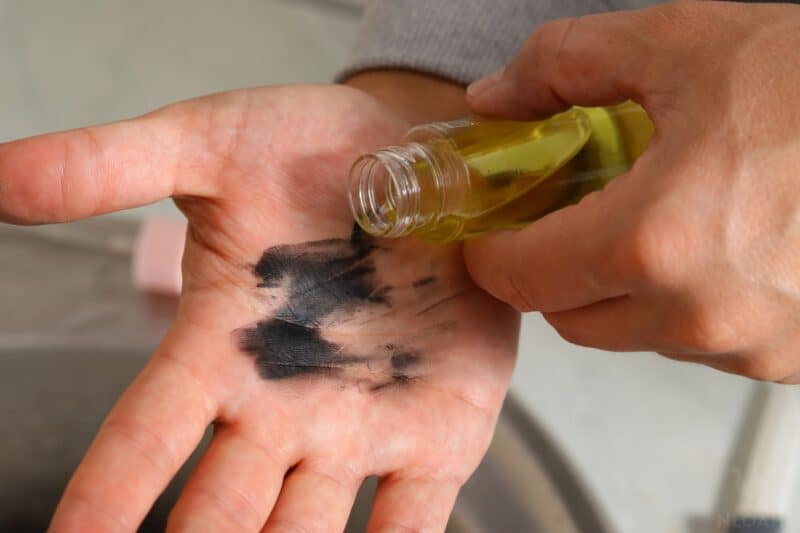
Rub some cooking oil into your hands rather liberally and allow it to soak in for about five minutes. When you wash away the cooking oil with soapy water, all or most of the paint should be whisked away, as well.
Lock Cleaning
Pour a little bit of cooking oil into or onto a lock that has been sticking to help clean away the rust or gunk that built up inside.
Outdoor Furniture Protection
Cleaning both wicker and rattan furniture with cooking oil will not only help to clean away any debris (especially when dealing with outdoor furniture) but help protect the furniture from exposure to the elements… and spills.
I typically combine equal parts cooking oil and distilled white vinegar when cleaning wicker and rattan furniture.
I recommend NOT adding used cooking oil when working with outdoor furniture if it was used to fry bacon or meat of any kind because even minuscule particles can attract unwanted attention from pets, livestock, predators, and insect pests.
Stuck Glasses – If you ever have two glass or plastic glasses get stuck together after washing and stacking them, simply rub a little bit of cooking oil around the rim of the lower glass and in a couple of minutes the dripping of the oil into the void between the glasses should help them to slide apart with eases.
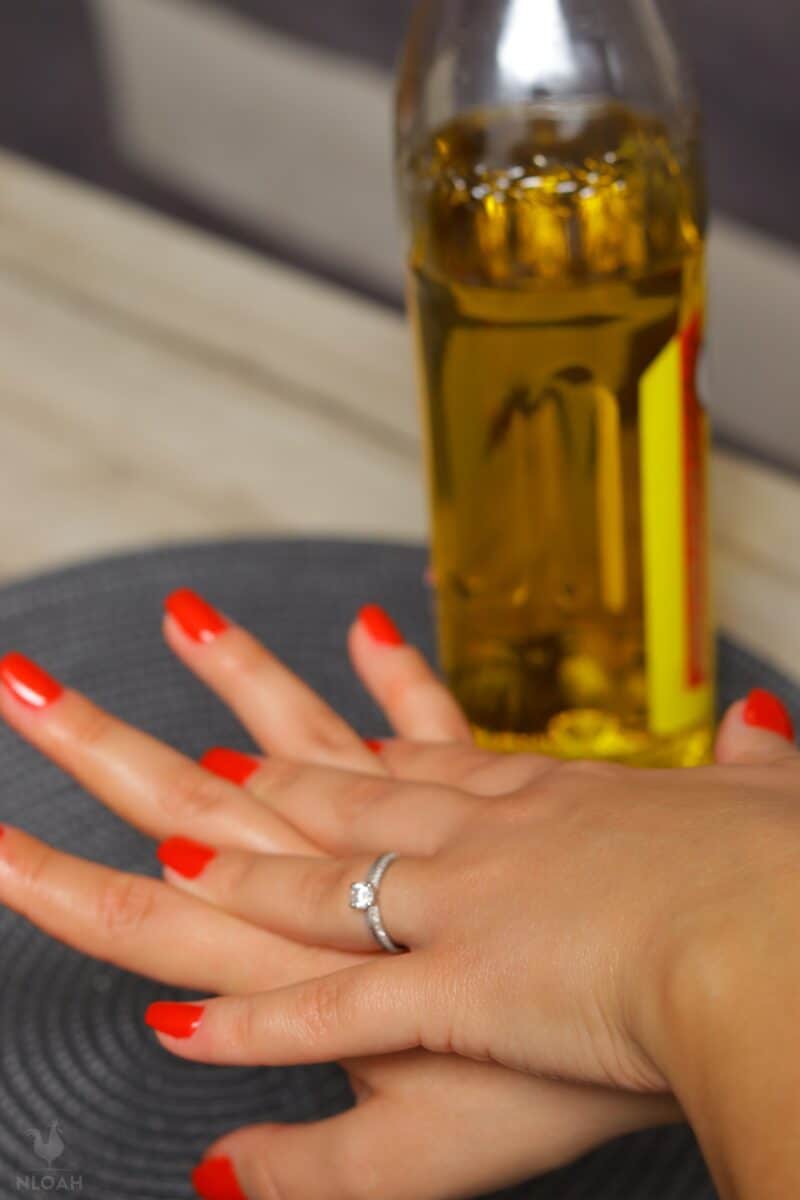
Cracked Skin
Massage a teaspoon or so of cooking oil into your feet if they are dry and cracked just before bed.
Place a sock over your feet and allow the oil to work its magic all night long. Come morning, your feet should be a lot softer and smoother.
Appliance Polish
Cooking oil makes a great polish for stainless steel appliances. A few drops of oil is all that you will need on a rag to clean an entire refrigerator. Do not try this cooking oil hack with used oil, any debris in the oil will become stuck (albeit temporarily) to the appliance.
Herbal Salve and Lip Balm Making
Cooking oil, even well drained cooking oil, can be used as a binding base for herbal salve making. When adding used cooking oil to a salve or lip balm recipe will likely shorten its shelf life from about one year to a few weeks or several months.
My friend and Old School Survival Boot Camp presenter, Jamie Schmotzer of JW Apothecary shared this cooking oil use idea with me – and let me try out the results in his bacon lip balm.
The faint hint of a bacon smell and taste made this a favorite stocking stuffer for all the guys in my family.
Splinter Removal
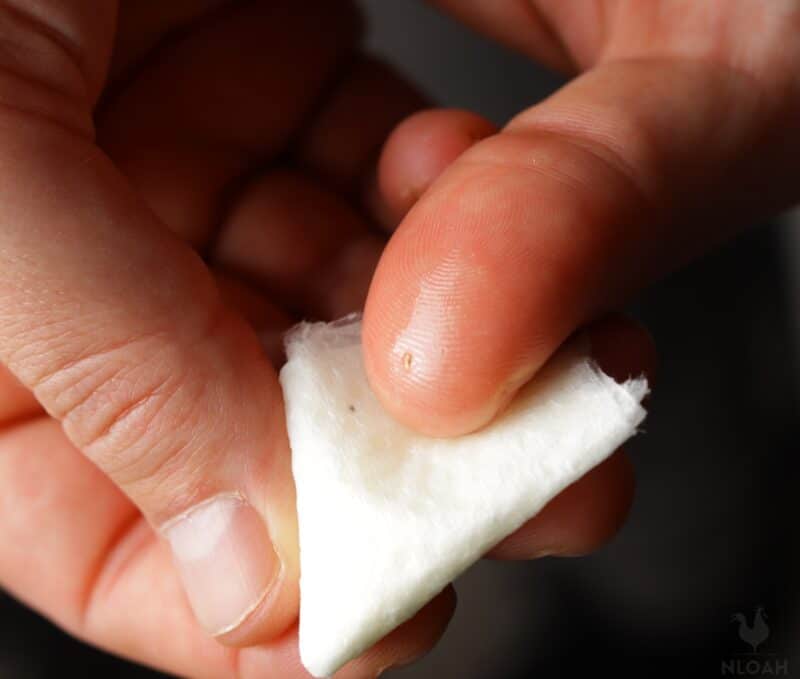
Soak the injury in cooking oil for about five to 10 minutes to soften the skin and help you have a better chance at getting a hold of it with tweezers.
Bird Bath
Pour a capful of cooking oil into a bird bath (or even a baby pool) to deter mosquitoes from calling it their new home.
Wood Polish
Using cooking oil to condition and polish wood furniture and decor makes it shine even better than using my old go to: Murphy’s Oil, in my personal experience.
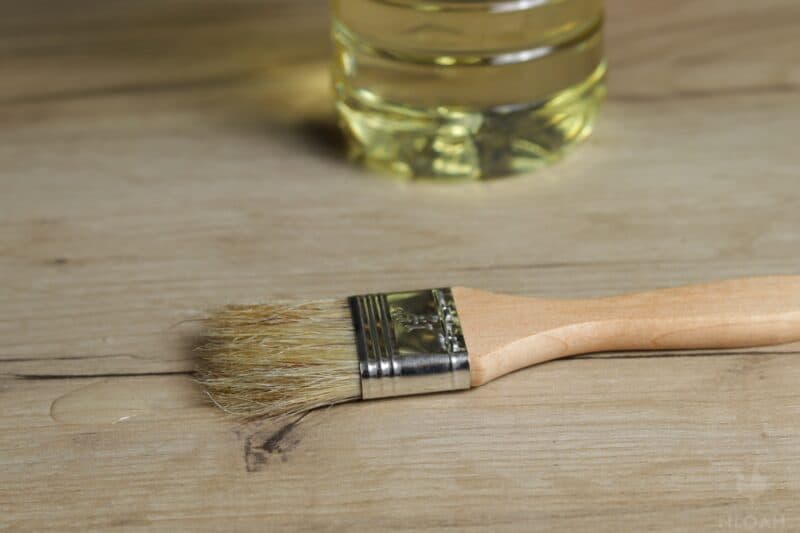
The cooking oil can help reduce the appearance of dullness in the wood and lessen the appearance of scratches.
I mix together equal parts distilled white vinegar and cooking oil when making a natural wood polish. I have done this scores of times on all kinds of wood and have never had an issue with the vinegar yellowing the wood.
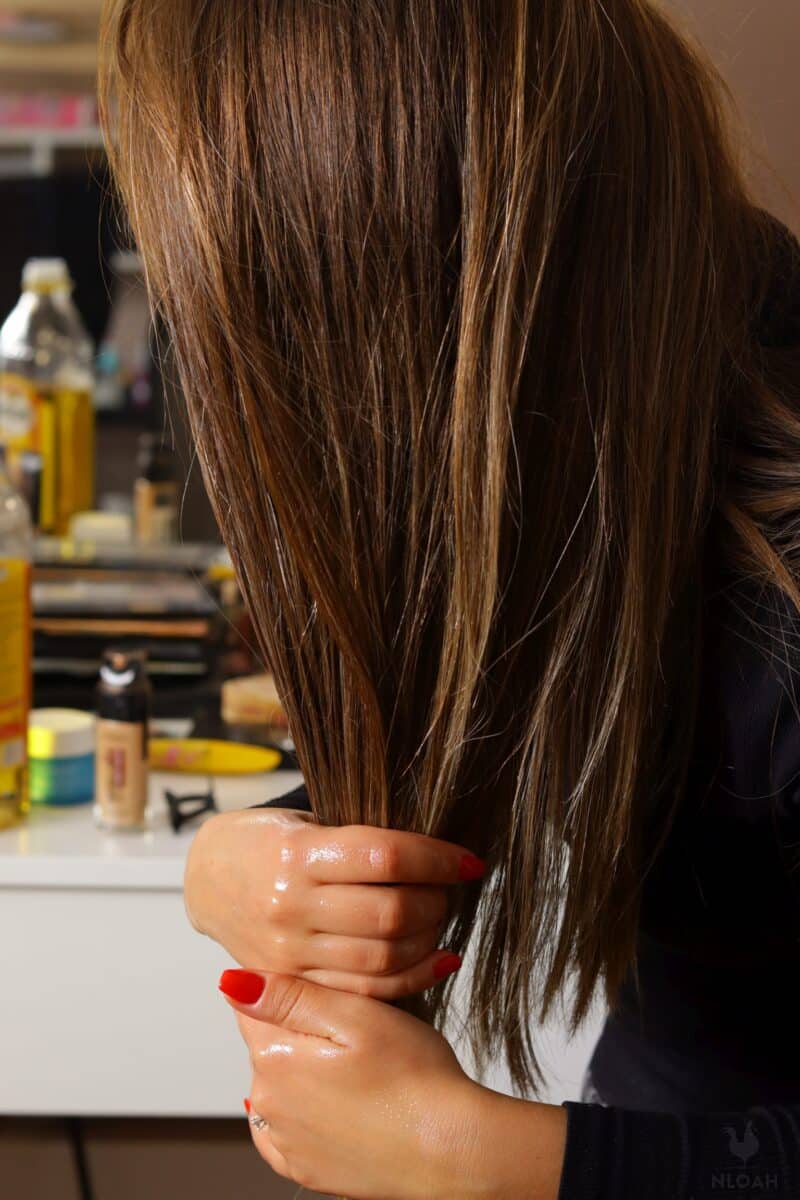
As Hair Conditioner
Using cooking oil on your hair should not only condition it but infuse more moisture into it, as well. I like to warm the oil like my mother used to do with her little tubes of Alberto V05 when she felt her hair needed a hot oil treatment.
Using the double boiler method or simply popping a coffee mug filled with cooking oil into the microwave only long enough to make it warm, not hot seems to do the trick on dry hair and split ends every time.
Allow the cooking oil to soak on the hair at least 15 minutes before washing it away. There will be a lot less dripping and perhaps better saturation, if you wrap a plastic bag around the top of your head during the cooking oil hair conditioner treatment.
Label Removal
Soak glass jars in cooking oil before removing their labels for re-use to prevent tearing of the label and the presence of sticky residue on the glass. After about a 10 minute soak in the oil, the labels tend to slide right off, leaving the glass beneath them nice and smooth.
Soap Making
Cooking oil can be used in lye soap recipes as an active ingredient. One of the essential ingredients in many soap recipes is fay, and vegetable oils contain a higher quality of fat than animal based fat ingredients.
Gardening Tools
Dirt, sand, and grass are but a few of the things that can cling to garden tools. If you are using a rake or shovel to clean out the poultry coop or a barn stall, far more nasty smelling natural matter will build up on the tools.
The debris on gardening tools can easily carry bacteria from one diseased plant to another or from an animal pen being cleaned up after a sickness or merely moving a bacteria that doesn’t bother one animal into the living quarters with ones that it will.
After cleaning gardening tools coat the working ends of them with cooking oil to vastly reduce what can stick to them and also to protect them from rust.
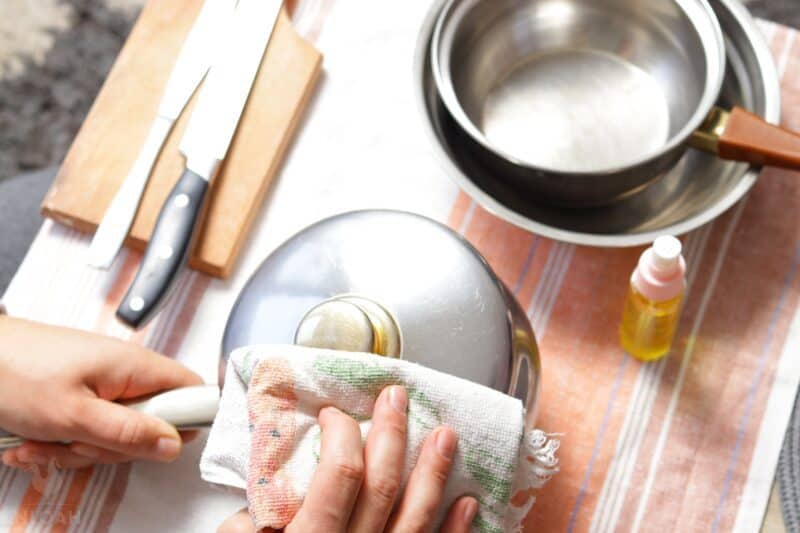
Protect Your Pans and Pots
By coating the surface of either new or old pots and pans with a very light coat of cooking oil you will help protect them from scratching and rust.
Cast Iron Seasoning
Lightly rub your cast iron cookware, blacksmithing tools, and blacksmithing tools with cooking oil to protect them from where and to season them over a heat source.
Biodiesel Fuel
Cooking oil makes an excellent base for DIY biodiesel fuel. It will take at least 1 liter of cooking oil to make just a small batch of biodiesel fuel.
You can stockpile cooking oil containers with tightly sealed lids until you have enough to make a batch of biodiesel fuel and/or network with local restaurants to garner their used cooking – most will be thrilled to no longer have to deal with disposing of it.
Composting
Adding only a small amount of USED vegetable oil to a compost pile tends to help feed the worms that are so vital to the processing of the natural matter. Add just a cup or two of the used cooking oil to a 50-gallon drum amount of compost about once every week or to for best results – in my personal experience.
Animal Feed
Drizzling a few tablespoons of pet or livestock feed will help infuse moisture into their fur and skin and also help them to have a shiny coat. Make sure not to give used vegetable oil to an animal that has been used to prepare food that is not safe to eat for the breed.
Jar Lids
Rub a few dabs of cooking oil around the rim of a jar to help prevent it from becoming too tight to open.
Vehicle Cleaner
Cooking oil applied to a rag can be used to remove even tough dirt and debris from the dash and vinyl parts of the car interior and from the exterior body, as well.
Some folks staunchly maintain that cooking oil works incredibly well to break up tar splatter so that it can be washed off of a vehicle.
Car Maintenance
Use some cooking oil to lube brakes and other mechanical parts that would normally require a squirt or two of WD40 to remain in good working order.
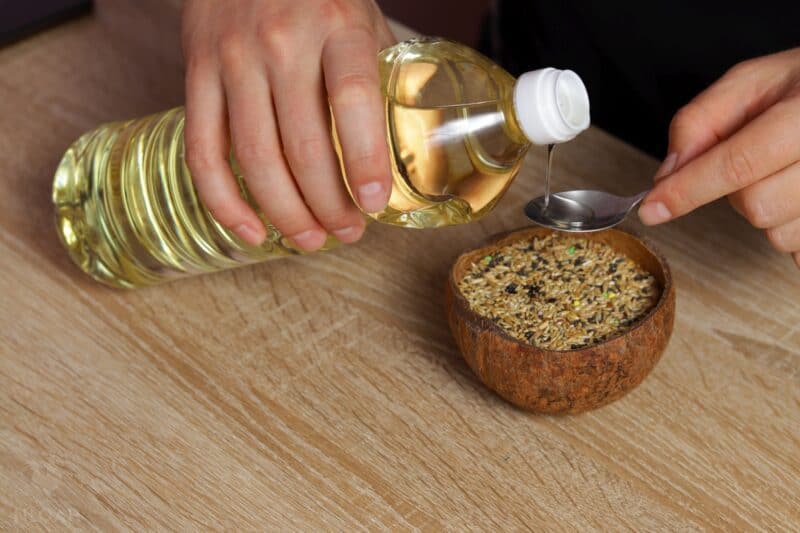
Bird Feeder
Pour a few tablespoons over feed in a bird feeder to offer your feathered friends some added fat in their diet as they prepare for a long cold winter.
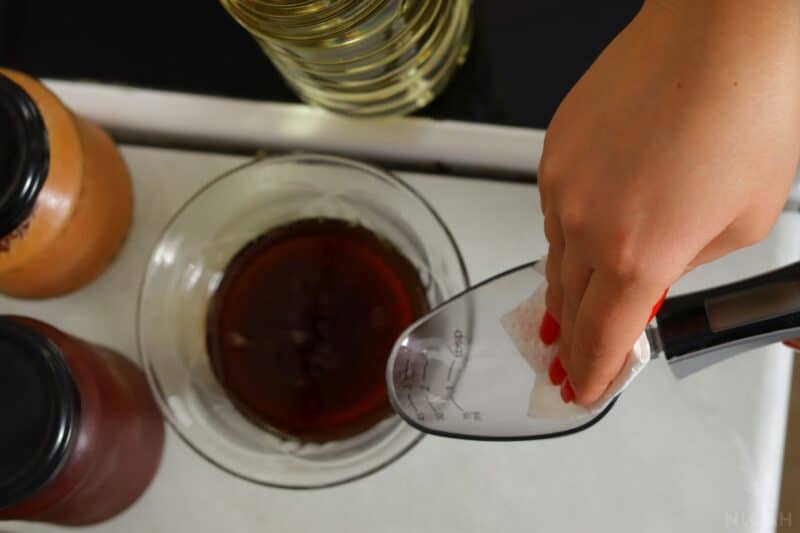
Avoid Ingredients from Sticking To Your Measuring Cup
Rub a pinch of cooking oil on the inside of measuring cups before pouring in sticky ingredients such as honey, molasses, jelly, etc. so they release easier and do not leave residue you have to scrape away.
Gun Cleaning
You can use cooking oil in place of gun oil when cleaning and lubing a firearm or magazine. Go lightly with the oil because it does not take much and will drip and make a big mess as you move the gun about during the cleaning process if too much cooking oil is used.
Final Words
Used cooking oil is a multiple use free source that should never be wasted around the homestead.
To save your used cooking oil for extended future use, simply keep it in its original bottle or pour it into a Mason jar and store it in a cool dry place. If the oil was used to prepare meat, it may be best to keep it refrigerated to prevent spoilage and bacteria growth.
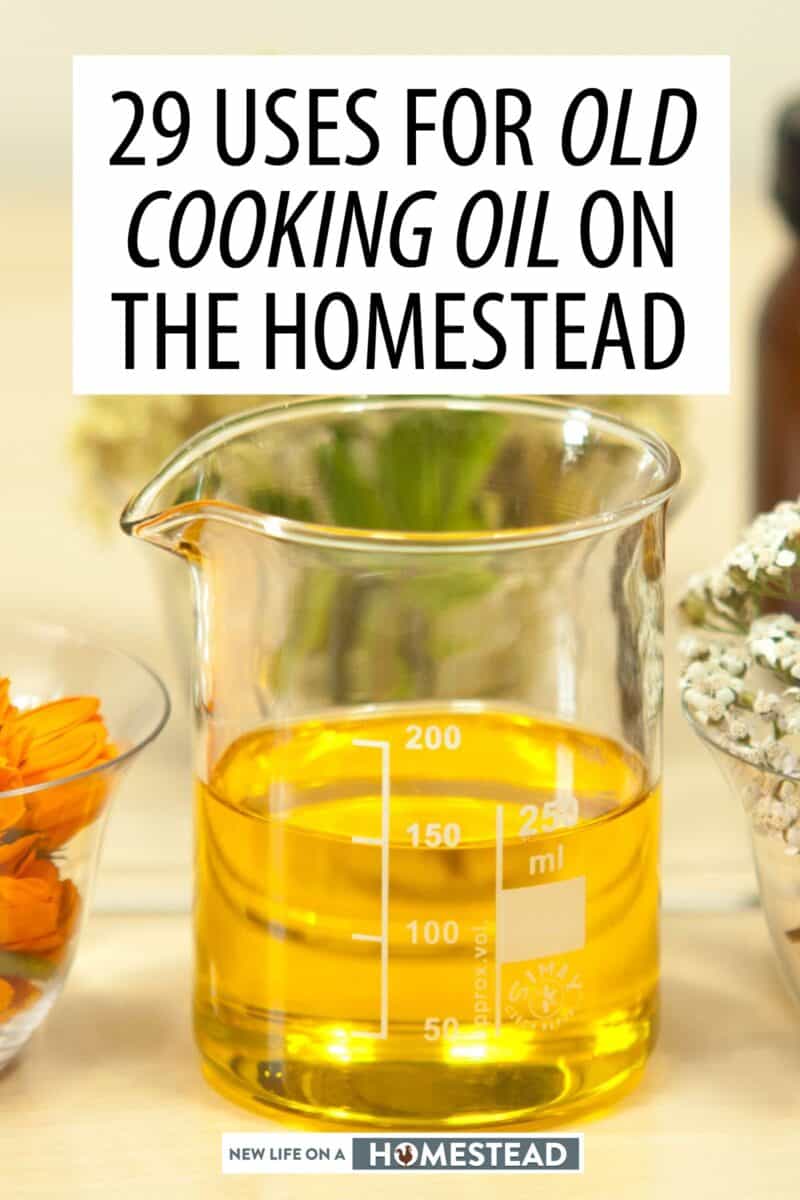

Tara lives on a 56 acres farm in the Appalachian Mountains, where she faces homesteading and farming challenges every single day, raising chickens, goats, horses, and tons of vegetables. She’s an expert in all sorts of homesteading skills such as hide tanning, doll making, tree tapping, and many more.

great article. exactly what I was looking for. I don’t use it to cook very often and even then it’s only a couple of tablespoons. Unfortunately, you can’t get small containers of veg oil around here (canola yes-veg no), so I always end up having to buy a big bottle. By the time I use it again it’s years after expiration and I have to purchase another one.
When using used cooking oil on saddles or other leather goods, add peppermint or spearmint oil to the mix to keep rodents from chewing the leather. Adding an ounce or two of kerosene to the oil instead of mint oil will have the same effect but may darken the leather.
dont lubricate brakes, dangerous
Excellent article! i am always looking for a way to recycle/reuse. Thanks so much. Joe